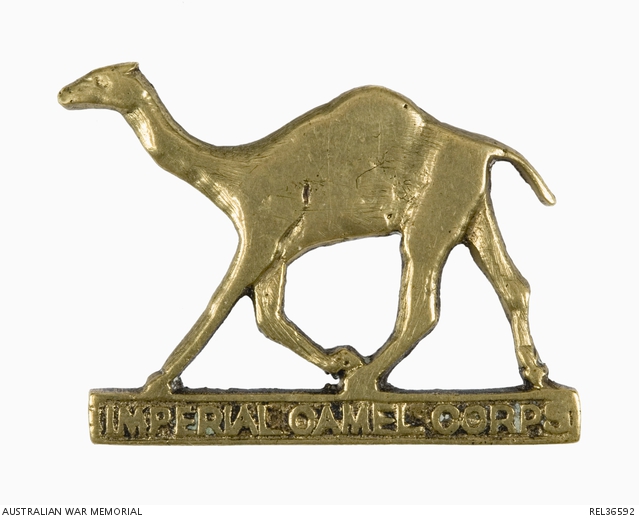William Martin Fender (1901 – 03) was the only son of Thomas and Lillia Fender and was born in Geelong. At the age of thirteen he enrolled at CGS in 1901 as a boarder from Metung as his father was then a surveyor located in Tambo Bluff. He won prizes in debating and athletics, but left CGS at the end of the 1903 school year to work as a clerk.
Light Horse
When war broke out in August 1914, and aged nearly twenty-seven years old, he enlisted immediately and was posted to the 6th Light Horse eventually serving at Anzac Cove in May 1915. He was wounded in the head in action at Gallipoli in August, but on recovery he returned to duty. He transferred to the 2nd Light Horse in early 1916 and spent the year on active service in the Middle East campaign. He was promoted to 2nd Lieutenant and joined No.2 Company of the 1st Battalion of the Imperial Camel Corps in early April 1917.

POW
On 21st April, during the Second Battle of Gaza, where the Australians suffered very heavy losses against the Turkish forces, he was first reported missing in action and then as a POW. In 1919, a year after the war had finished, his family had still not received official news of his fate and expected him to be released with other POWs of the Turks. His father wrote to the Department of Defence,
‘Much uncertainty as to his fate exists. My own impression is that my son may perhaps be lying somewhere in a Turkish hospital in a paralysed and helpless condition.’
Mortally wounded
Sadly, the hopes of the family were dashed when a report made a week after Fender’s death by a fellow solder who had been captured, came to light. This eyewitness reported seeing William Fender lying mortally wounded during the battle. Accordingly, Fender was declared Died of Wounds received in action at Charta Redoubt at Gaza on April 19th1917. As it transpired this redoubt, (a temporary fort) was the only position captured by the Australians during the battle and was held for a number of hours before overwhelming numbers of Turkish troops recaptured it.
William Fender had been wounded and was the only Australian officer left at that stage of the battle, as all the rest had either been wounded or killed. He has no known grave and so his name is recorded on the Jerusalem Memorial in Israel. His father noted that ten of William’s cousins had been killed or died of wounds during World War 1.
Read more of our alumni ANZAC profiles here.
Researched and written by Dr Daryl Moran (CGS 1966-70; staff 1981-93; current CGS Archives Volunteer).




